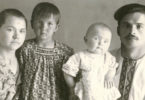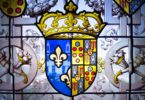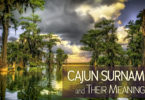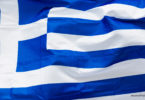Tens of millions of Americans have Irish heritage, and many still carry those surnames with pride. But where did these names come from? And why does it matter?
Understanding how Irish surnames formed can reveal important details about your ancestors. It may also help you trace your family tree more easily—especially if your roots lead back to Ireland. This guide walks you through how Irish surnames developed and how they can unlock your family’s past.
Why Early Irish People Didn’t Use Surnames
In ancient times, Irish people didn’t need surnames. Most lived in small villages where everyone knew each other. Since most villagers were related, there was little need to identify families with extra names.
As towns grew larger and more people moved between them, that changed. To distinguish themselves, people began using “son of” or “daughter of” their parents’ names—especially if those parents were already known in the community.
What Irish Surname Prefixes Really Mean
Irish surnames often start with O’, Mc, or Mac, which all mean “son of.” The prefix Ni, though less common, means “daughter of.” Even the word “surname” translates to “sired by.”
First names had meanings, too. For example, if your last name is McAllen, your ancestor was likely named Allen. In Irish, Allen means “handsome.” Before surnames became standard, first names described the person.
Following Family Lines Through Naming Patterns
In most cases, the child using a “son of” or “daughter of” surname had a different first name than their parent. But not always. Names like Brian O’Brian simply meant Brian Jr.
These naming customs help genealogists track generations back through Irish history. One of the earliest recorded uses of an Irish surname was in 916 A.D. in Galway. A lord named Tigherneach Ua Cleirigh used “Ua,” the early form of “O’.” His descendants are now known as the O’Clery or O’Cleary families.
How the Normans Changed Irish Names
When the Normans invaded Ireland in 1169, some Irish families adopted the Latin prefix Fitz, meaning “son of,” as the Normans used it. Others kept their Gaelic surnames despite political and cultural pressure.
Surnames Based on Occupation
Not every surname came from a parent’s name. Occupation-based surnames became very popular in Ireland. These names served a practical purpose—they helped advertise a person’s trade.
A baker, cooper, mason, thatcher, smith, or wright often used that job as a surname. These names are still common today, in Ireland and around the world.
Geographic Surnames in Irish History
Some Irish surnames came from places or land features. People often used a town or region as their surname. For example:
- A person from Bray might be called Bray.
- Someone from Wales might use Welsh or Walsh.
- A person living near a hill might adopt Hill as a surname.
Natural features also shaped surnames. Names like River, Rivers, Montgomery (from mont, or mountain), and Mondale (from dale) are examples of geographic surnames.
Religious Conflict and the Anglicizing of Names
By the 1500s, English Protestants began suppressing Irish Catholicism. English settlers were granted Irish land, and the native Irish population lost status. To blend in, many Irish families Anglicized their surnames.
This meant changing them to fit English spelling and pronunciation. Here are a few examples:
- O’Ceallaigh became Kelly
- O’Murchadha became Murphy
- MacGabhann became Smith
Anglicizing surnames helped Irish people keep jobs and avoid discrimination. These changes still affect Irish surname research today.
What Irish Surnames Can Reveal About Your Past
When you understand the history of your surname, it’s easier to trace your family tree. Even if you don’t have written records, the name itself may tell a story.
You can learn who your ancestors were, what kind of work they did, and where they lived. Irish surnames carry an oral history that connects you to generations long past.
Recognizing Anglicized Names and Tracing Them Back
Most surnames around the world started by identifying a person through a parent, job, or place. Ireland followed the same path. But Anglicized names are a unique part of Irish history.
If you learn a little Gaelic, you might discover whether your Irish name was changed. That can help you reverse the change and find the original form of your surname.
From there, you can follow the name even farther back—opening more doors to your Irish heritage.






